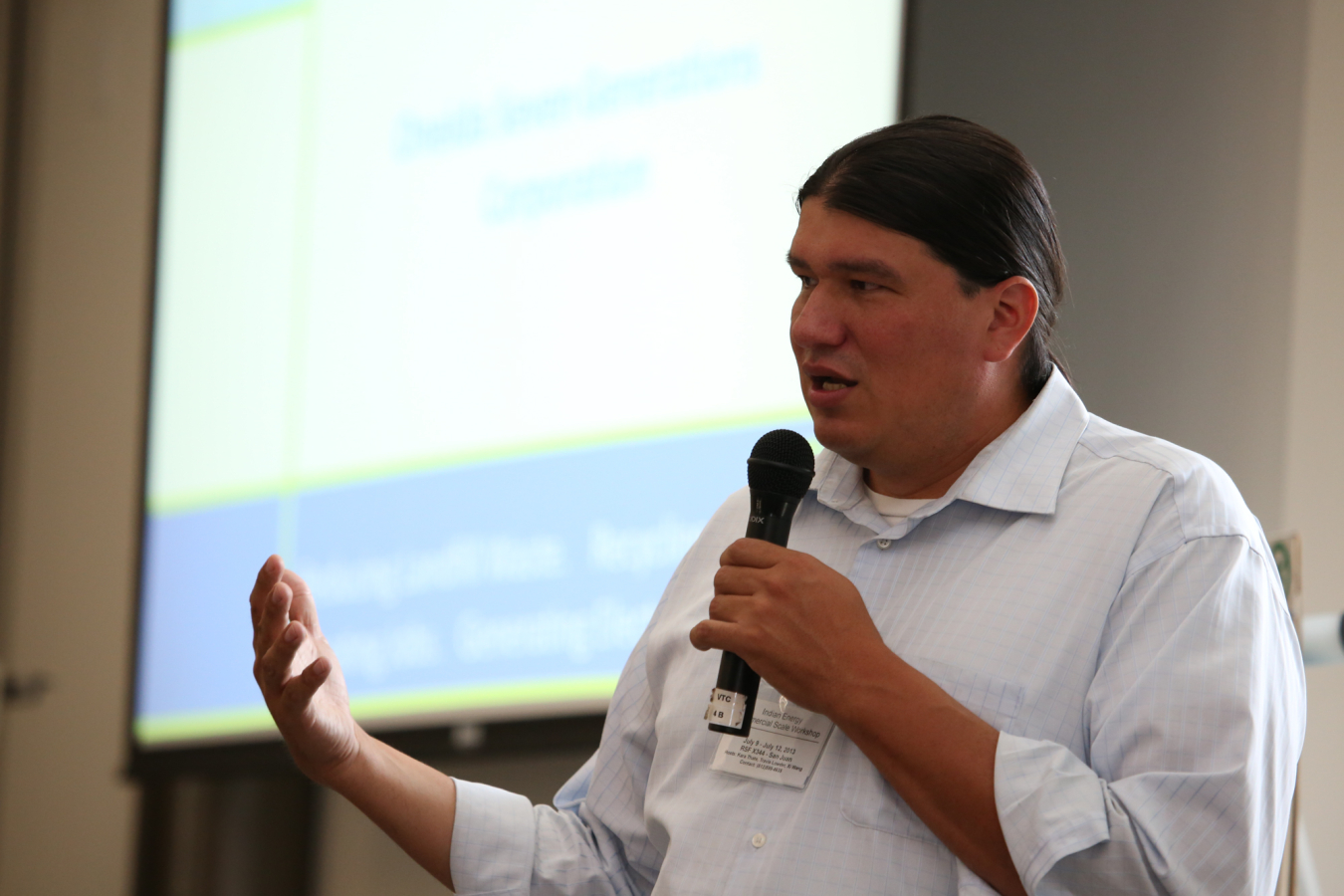
Workshop guest speaker Bill Cornelius of Oneida Seven Generations Corporation discussed the tribal renewable energy project development and finance process in action. Photo by John De La Rosa, NREL
Workshop guest speaker Rebecca Kauffman outlined the roles Tribes can play in renewable energy projects, as well as lessons learned based on her experience working on projects for the Southern Ute Tribe. Photo by Amy Glickson, NREL
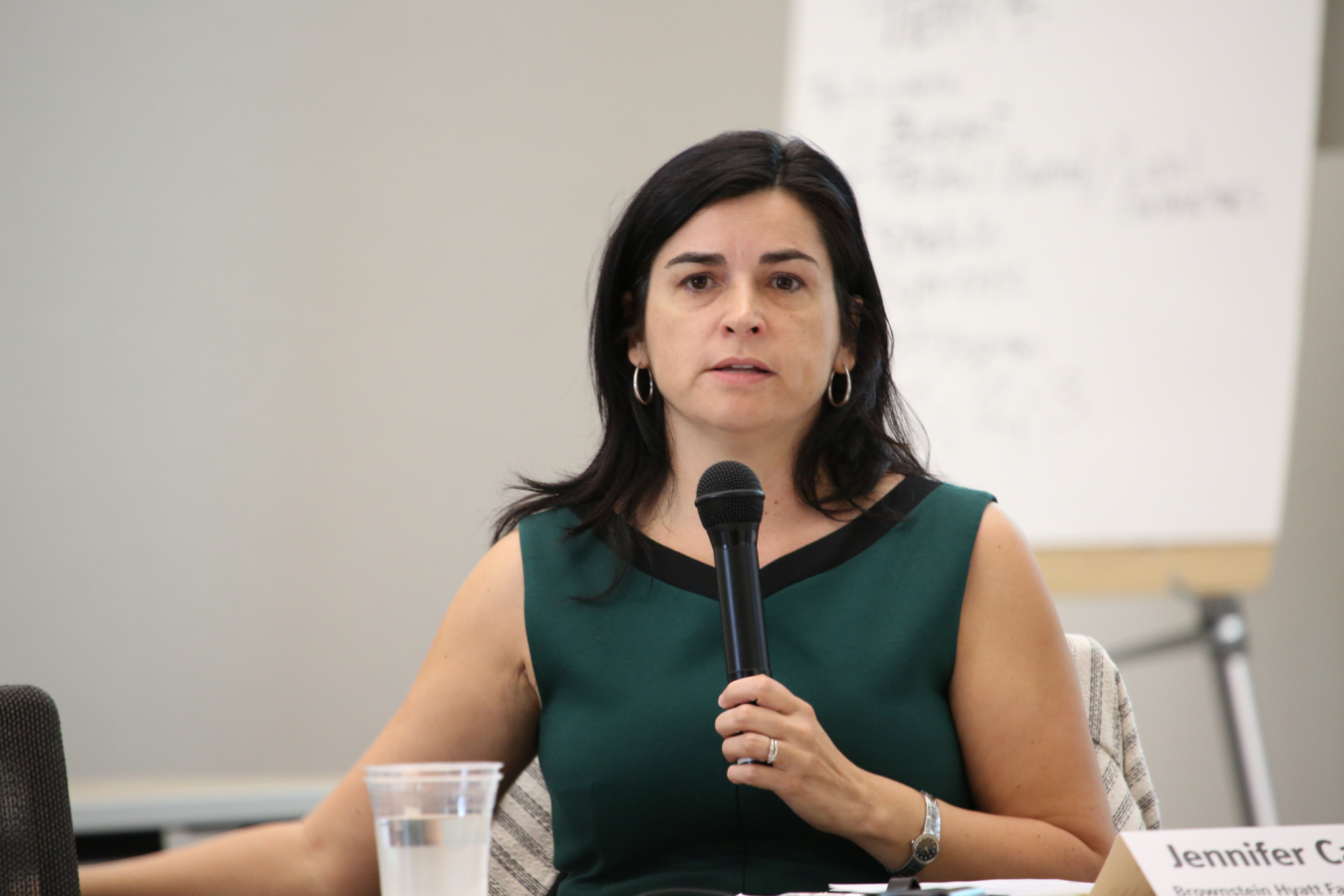
Workshop guest speaker Jennifer Carleton discussed the process for financing and constructing the Moapa Band of Paiutes' 250-megawatt solar farm, which is the first industrial-scale solar photovoltaic project in Indian Country. Photo by John De La Rosa, NREL
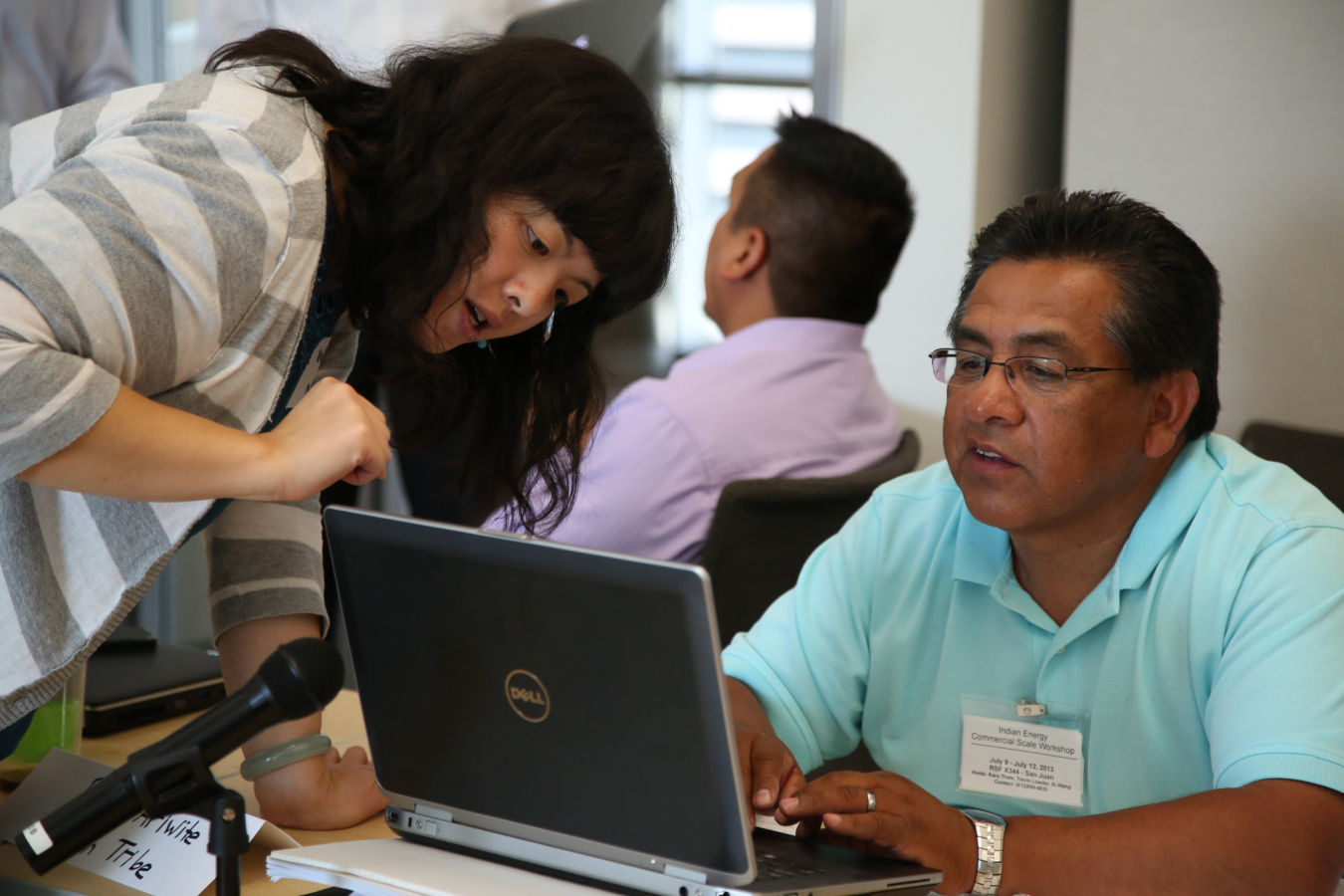
Workshop attendees received hands-on training from NREL technical experts on how to use a free online tool called the System Advisor Model to make informed decisions about renewable energy development. Photo by John De La Rosa, NREL
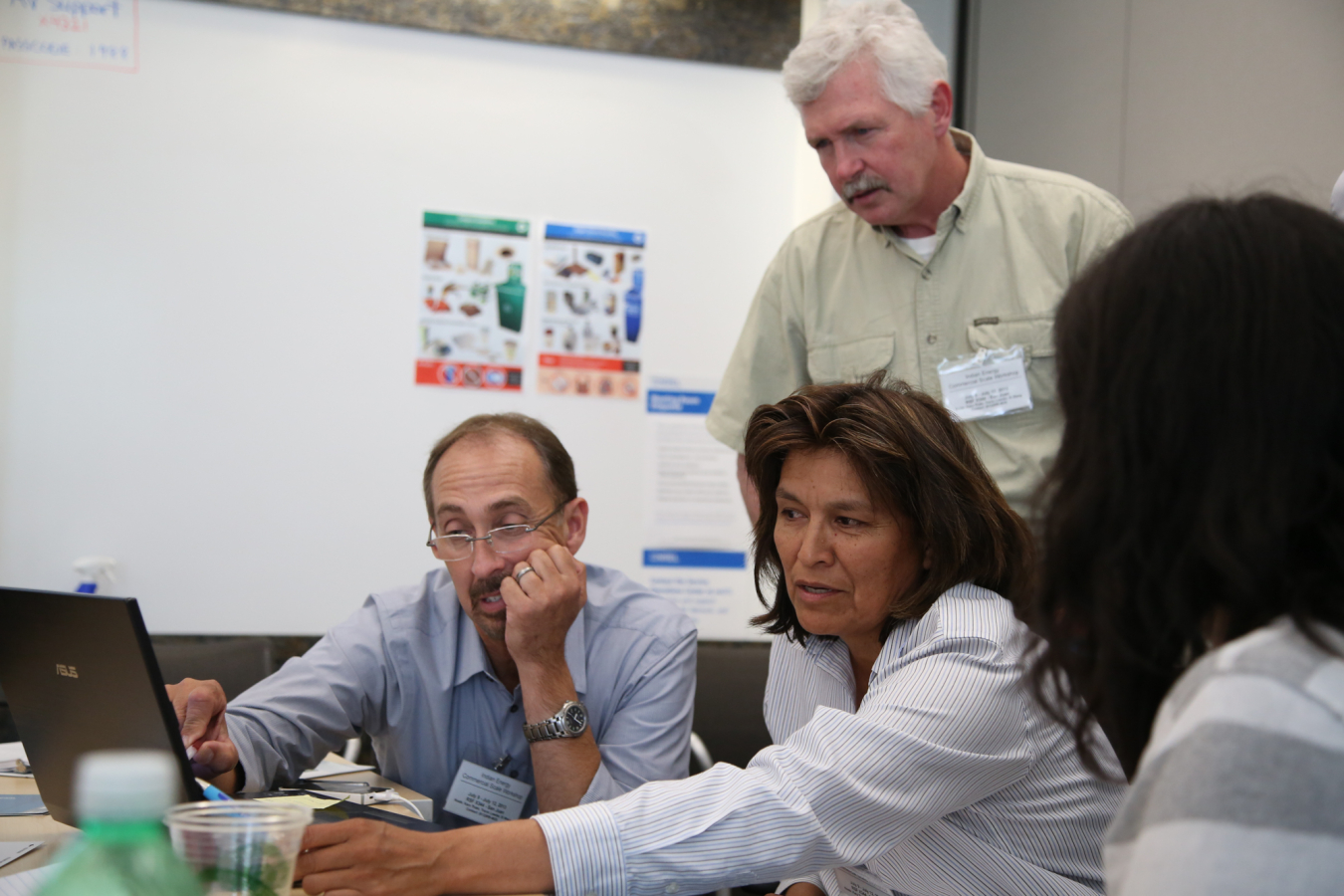
Participants got a first-hand experience using the System Advisor Model. Photo by John De La Rosa, NREL
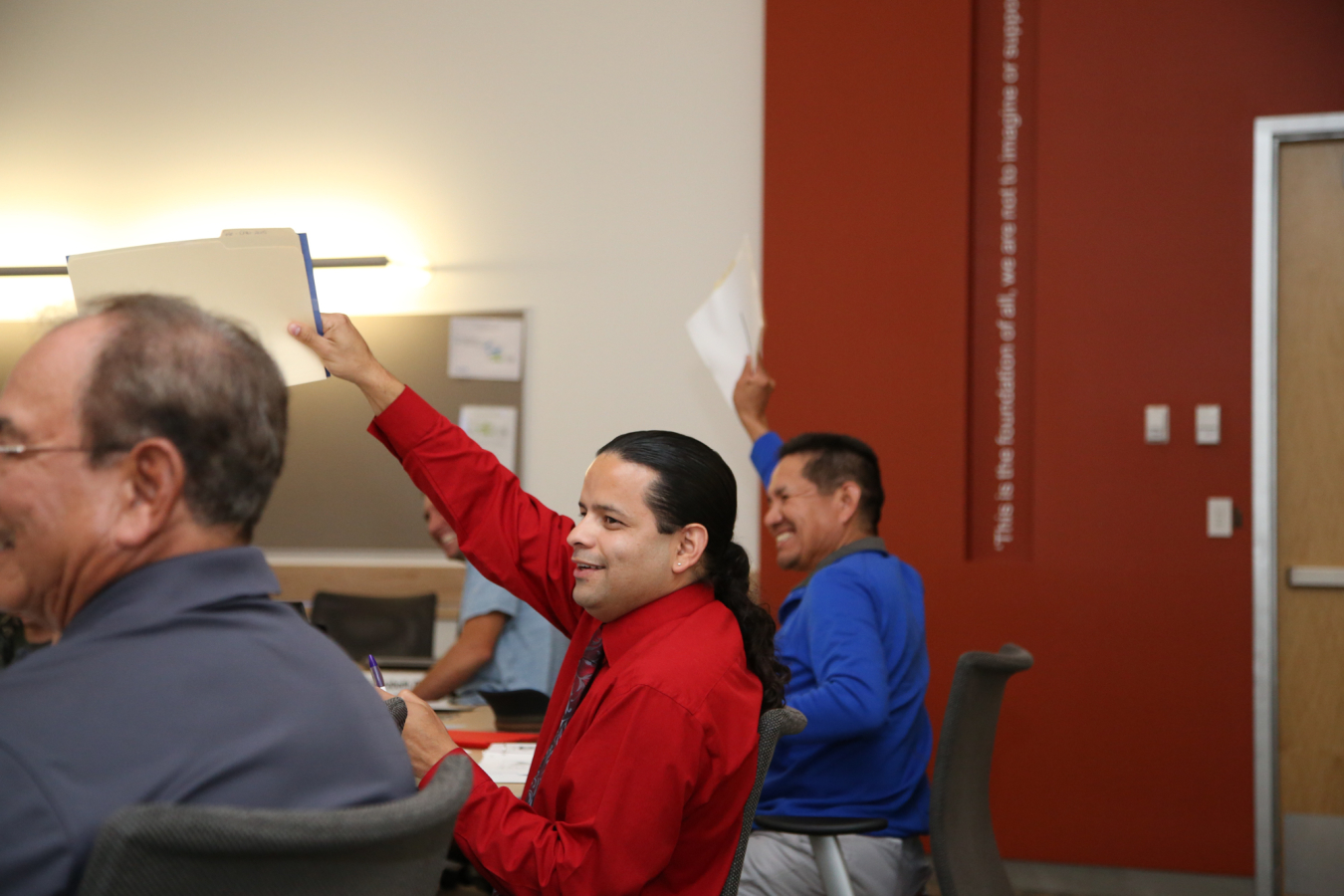
Attendees tested their knowledge during a game of Jeopardy. Photo by John De La Rosa, NREL
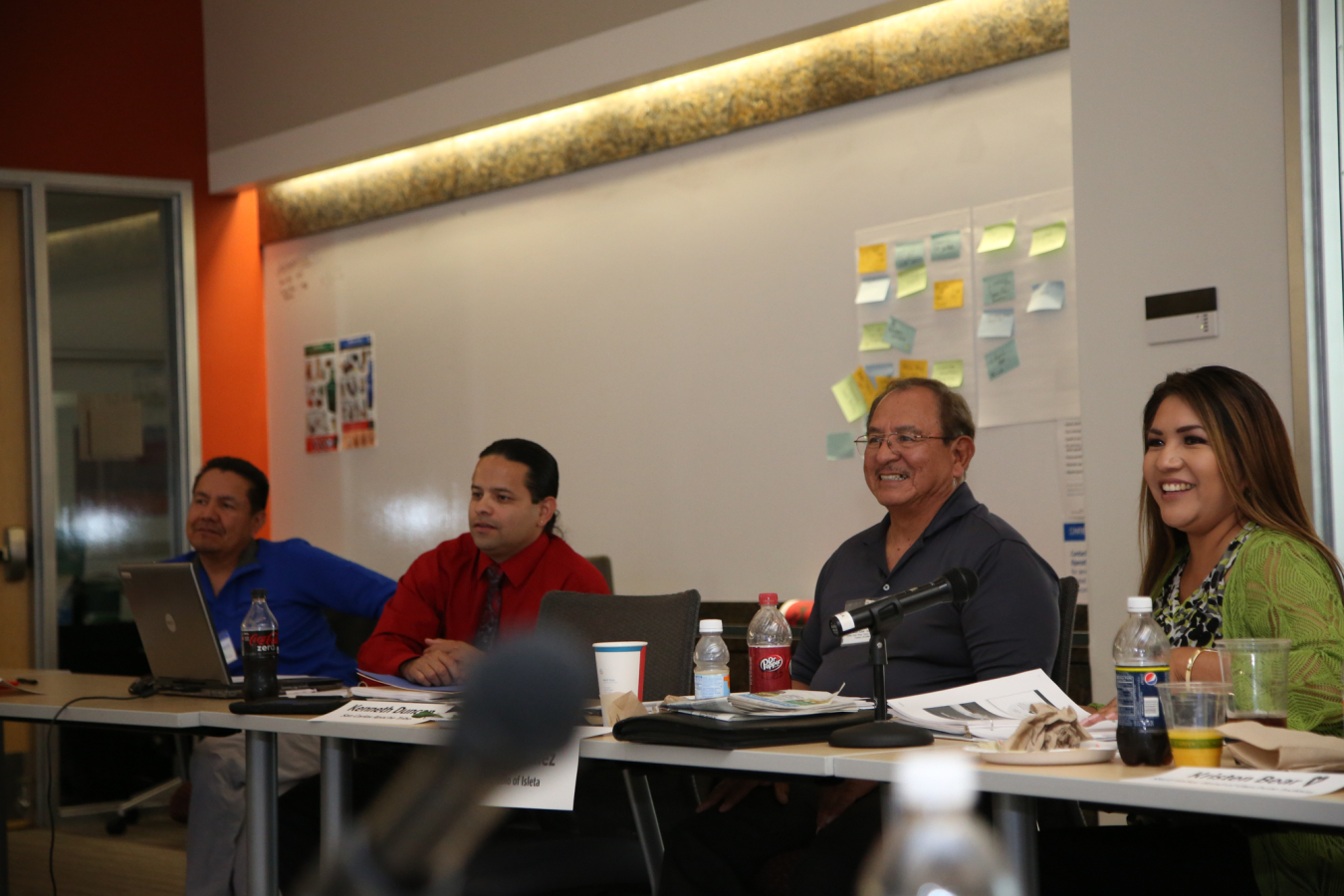
A friendly competition ensued when the participants were divided into teams to play Jeopardy to recap key topics covered during the workshop. Photo by John De La Rosa, NREL
The U.S. Department of Energy (DOE) Office of Indian Energy hosted a Commercial-Scale Renewable Energy Project Development and Finance Workshop July 9–11 at the National Renewable Energy Laboratory (NREL) in Golden, Colorado. Twenty participants from 13 Tribes took part in this incredible training opportunity for tribal leaders and staff to learn about the process and potential pitfalls of developing renewable energy projects in Indian Country.
The workshop, which is part of the Office’s renewable energy development education and training curriculum for Tribes and built upon a pilot workshop held last June, walked participants through the project development process beginning with strategic planning. Participants worked through exercises with NREL staff and experts, gaining hands-on experience with identifying project potential, reviewing maps to make site selections, writing and evaluating requests for proposals, and determining business structures and finance options that best served the project goals of the Tribe.
In doing so, participants also learned how to use the many tools available through NREL. Much to my surprise, one of those tools—NREL’s System Advisor Model or SAM, a free computer program that calculates a renewable energy system’s hourly energy output over a single year and the cost of energy for a renewable energy project over the life of a project—turned out to be one the biggest hits of the week, as it empowers Tribes to make informed decisions about renewable energy development.
Guest speakers Bill Cornelius (Oneida Seven Generations Corporation), Rebecca Kauffman (Southern Ute Tribe), and Jennifer Carleton (Moapa Band of Paiutes) contributed additional dimension and tribal perspective to the workshop as they discussed their experiences developing renewable energy projects in Indian Country. I cannot thank them enough for sharing their firsthand insight and knowledge. Their words about the importance of communication and relationships, solid planning and documentation, knowing when to pull the plug and doing so, and the iterative nature of the development process still resonate with me.
I have to recognize our workshop participants as well. Each came prepared to learn and to take their newfound knowledge home to advance their Tribe’s renewable energy project goals. They waded into some pretty dense materials that would easily turn away any casual participant in renewable energy development, and they came out with a greater understanding of the project development and finance process.
At the end of the workshop participant Gerald Warrington of the Menominee Tribe of Wisconsin said, “It was phenomenal. Better than I expected. My Tribe can take a lot of what I learned from this and apply it moving forward.”
I am now very much looking forward to our next workshop for tribal leaders and staff on community- and facility- scale project development and finance, planned for the week of September 16 in Golden, Colorado. Watch the Office of Indian Energy’s website for more details on the workshop as they become available. In addition to the in-person workshops, the curriculum can be accessed on the National Training and Education Resource (NTER) online learning platform and on the Office’s education and training Web page.
